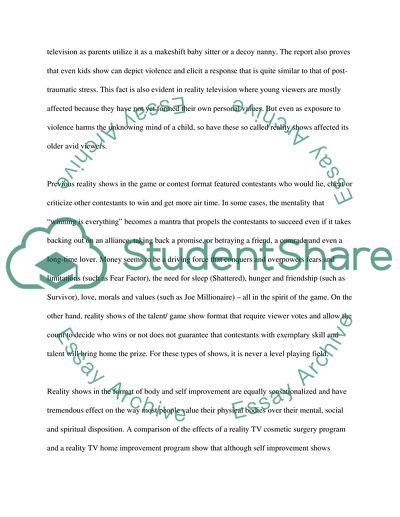Cite this document
(“Reality Television: A Silent Epidemic Contorting Human Values Essay”, n.d.)
Reality Television: A Silent Epidemic Contorting Human Values Essay. Retrieved from https://studentshare.org/media/1542249-persuasive-essay-for-eng-101
Reality Television: A Silent Epidemic Contorting Human Values Essay. Retrieved from https://studentshare.org/media/1542249-persuasive-essay-for-eng-101
(Reality Television: A Silent Epidemic Contorting Human Values Essay)
Reality Television: A Silent Epidemic Contorting Human Values Essay. https://studentshare.org/media/1542249-persuasive-essay-for-eng-101.
Reality Television: A Silent Epidemic Contorting Human Values Essay. https://studentshare.org/media/1542249-persuasive-essay-for-eng-101.
“Reality Television: A Silent Epidemic Contorting Human Values Essay”, n.d. https://studentshare.org/media/1542249-persuasive-essay-for-eng-101.


